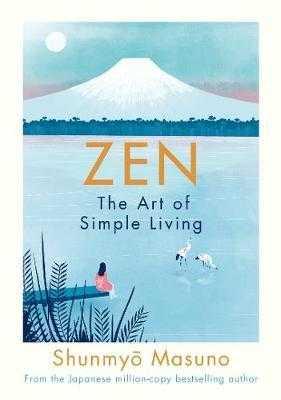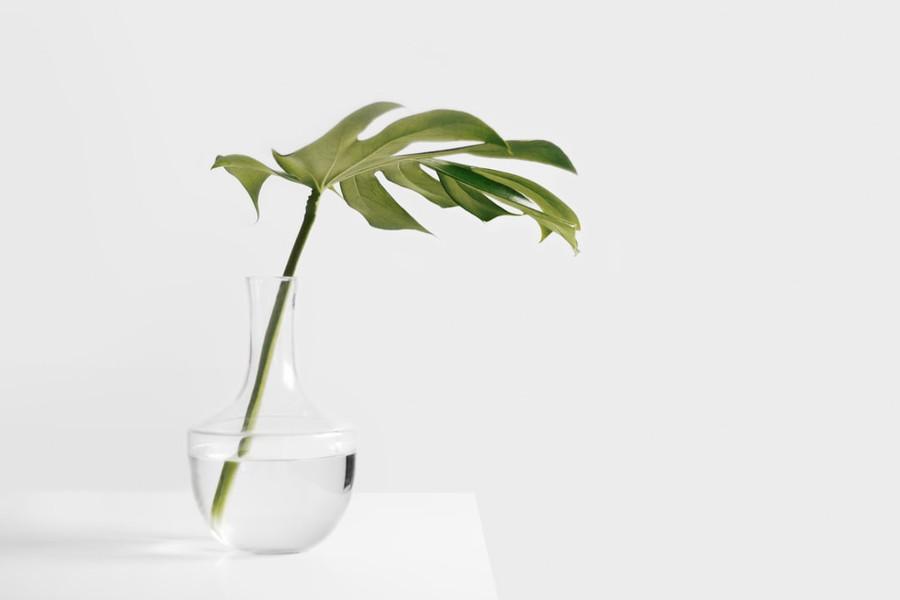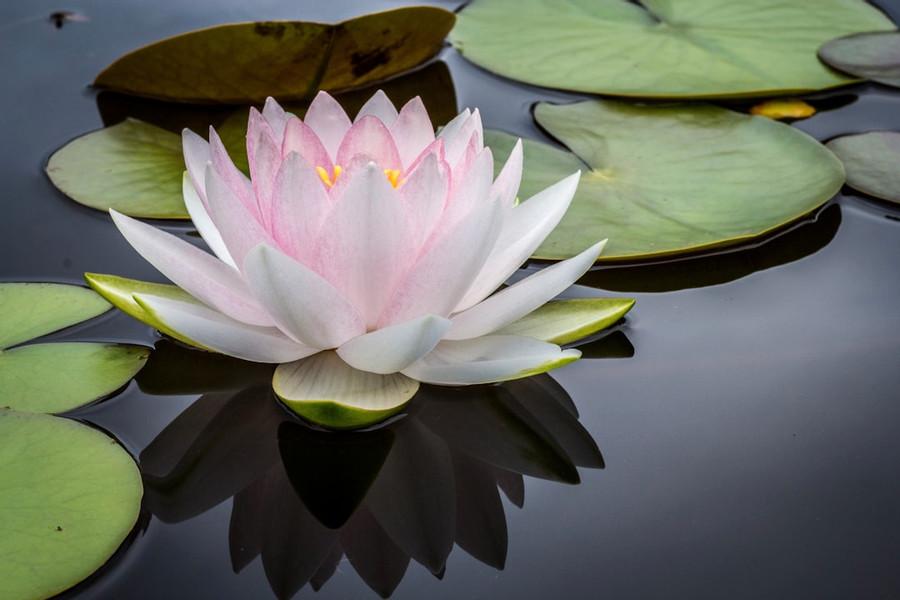Explore the World's Best Ideas
Join today and uncover 100+ curated journeys from 50+ topics. Unlock access to our mobile app with extensive features.
Simple Living
Consumption is a hallmark of the Western world. The age of information is upon us, a time when everything is available in abundance. Companies hire large teams to create ads that force us to accumulate. Our attention is their oxygen.
Practising Zen is going against the grain. It's saying no to advertisers and yes to ourselves. Zen advises living a simple existence in every domain, stripping each aspect of life to the essentials. Simple, intentional, purposeful, choose the definition that works best for you. The idea is to have what you consider enough and no more.
906
8.79K reads
Zazen Meditation
One has to find time to be alone with your thoughts and to sit quietly in nature.
Zazen is a meditation practice that originates from Zen and is a chance to sweep the detritus from your mind.
Zazen is the art of becoming aware of your thought patterns and bringing yourself into a state of inner peace.
The Method: First we assume the correct posture, next we focus on our breathing, and finally we steady our mind. Once we arrange all three of these things, then we begin to practise zazen.
Try sitting zazen: empty your mind and allow your thoughts to float up and then drift away.
917
6.26K reads
Munen Muso: Clear Mind
Munen muso is the act of retaining a clear mind throughout each activity. A clear mind is the best way to approach all tasks in life. By cultivating munen muso, we become less distracted by outside elements and more attentive to our inner dialogue.
Another way to say it is just mushin, or ‘clear mind’. You empty your mind and do not let it settle anywhere or wander. This allows you to focus on what needs to be done now, without worrying about all the other things in your life. It is a teaching that demonstrates the amazing power available to us if we can achieve a clear mind.
909
4.94K reads
The Three Poisons
The three poisons in Buddhism are greed, anger, and ignorance. Buddhism views them as the root of suffering that prevents us from reaching enlightenment. Irrespective of whether you are a Buddhist or not, we all would benefit from minimizing these negative emotions.
When we are afflicted with greed, once we acquire whatever it is we desire, we are still left wanting more. Anger makes us enraged by the slightest things, and once it is provoked, we take it out on others. Ignorance is a state of foolishness: we are heedless of common sense or knowledge and lacking in education.
918
4.76K reads
Avoid Black and White Thinking
Life is about compromise. If you fuss over black and white, you miss out on the beauty of grey. Buddhists don’t think in terms of black and white. Some things are white, some are black, and in between are various shades of grey. This broad-minded spirit is at the heart of Buddhism, and it has a lot to do with how it took root in Japan.
Things don’t need to be defined as right or wrong, black or white. Instead of coming down on one side or the other, a compromise may be the best way.
885
4.08K reads
Be Here And Now
Zen emphasizes becoming mindful of the present moment. Using your breath as an anchor can help clarify this concept, which can seem ambiguous at first. As humans, we can only physically live in the present moment; allowing our minds to dwell elsewhere is useless.
850
4.01K reads
Be Grateful For Ordinary Days
You will live a happy life if you can find gratitude in your ordinary days. If you must chase desires to feel joy, you will live a life of turmoil.
Whether our lives are magnificent or wretched depends upon our ordering of daily details. We must organize the details into a composition that pleases us. Only then will we have meaning in our lives.
876
3.65K reads
Knowing When To Stop Your Desire
Wanting more leads to suffering. Consider whether you really need an item before purchasing it. Treating ourselves is an essential part of living a healthy life. But there must be a balance between the endless tunnel of human desire.
Knowing how much is enough is about finding satisfaction in what you already have. Human desire is endless. Once we acquire one thing, we desire ten of them. And when we acquire ten things, we want a hundred. Even though we know we don’t need it, we cannot rein in our desire. Once engulfed by these feelings, there is no way to satisfy ourselves.
854
3.09K reads
Finding Beauty And Satisfaction in Imperfection
The Japanese term wabi-sabi means finding beauty in imperfection. Being satisfied with the way things are.
Perfection is unattainable; if you desire this to be happy, happiness will elude you.
899
3.51K reads
Knowledge and Wisdom
You must think for yourself. Do not construct life from shallow perspectives or opinions but rather from deep consideration. We are often picking these up unconsciously from those around us. Instead, we should always question the thoughts of others before adding them to our mental arsenal. Be aware of the differences between your experiences and learnings. Direct experience should not be confused with theoretical knowledge.
Within here lies the distinction between knowledge and wisdom. You can transfer learnings to experiences through action.
840
2.83K reads
Simple Living
Make Time For Emptiness
Making time for not thinking about anything – that is the first step towards creating a simple life.
Pare Down Your Belongings
In your head, picture a scene with a water element, and allow your mind to linger there. These gardens are truly representations of our mindset free.
In the course of your everyday shopping, before you acquire something new, give some thought to whether you really need it, and take another look at what you already have. Acquiring lots of things isn’t freedom.
850
2.53K reads
Minimalism
Living simply means, for instance, that the mug you use every day for coffee is a mug that you really like – one that you take good care of and that you will use for a long time. Acquire only good things that will truly be needed. A lifestyle of simplicity is the fundamental practice that will hone the mind.
860
2.54K reads
Just Sit Quietly
The act of thinking derives from the concept of sitting quietly. Humans are not capable of thinking while we are moving. We have only one mind, and when our mind is focused on movement, it is difficult for us to engage in profound thought. Even if you try thinking while you’re walking, it will always end up being about something practical, such as work arrangements or what to cook for dinner. Deep contemplation about absolute truth in the world or the meaning of life is not something that can be accomplished while in motion.
838
2.27K reads
Don’t Think Of Unpleasant Things Right Before Bed
The quiet practice of zazen releases in the brain the neurotransmitter serotonin, which functions as a mood stabilizer and has been shown to be effective in countering depression. Zazen can provide the therapeutic effect of boosting serotonin to the brain without the need to take medicine.
Once the brain is in a relaxed state, your blood vessels also gradually relax, improving your blood flow. This spreads warmth throughout your body.
832
2.17K reads
Make Time To Be Alone
The ability to live with a free mind, accepting things for what they are. This is the way of life that has come to be idealized.
The monk and famous tea master Sen no Rikyū coined the phrase ‘seclusion in the city’. It is this model that explains why teahouses in Japan are always set a slight distance away from the main building.
A place where you can disconnect from other people and spend time by yourself. A place in nature where you can regain mental freedom. A few moments of seclusion can illuminate the path forward.
842
1.97K reads
Don’t Be Troubled By Things That Have Not Yet Happened
Anxiety is intangible.
Anxiety: where does it actually exist? Inside your mind.
There is no need to be troubled by things that have not yet happened. Think only about what is happening right now.
Almost all anxieties are intangible. They are the invention of your own mind.
857
2.18K reads
Take Pleasure In Your Work
People who do their best to enjoy what is before them have the greatest chance to discover inner peace. Often, whatever it is they are enjoying – the thing before them – has the potential to turn into an opportunity.
In anything, the hard part is just to keep going.
‘The work I’m doing now is my true calling.’ Whoever can say this is very fortunate.
You can start something as long as you have the energy. Finishing, too, is easy. The hard part is just to keep going. If you tell yourself, day in and day out, that something is wrong for you, then how will it ever be right for you?
841
1.87K reads
Every So Often, Try To Stop Thinking
The empty state of not thinking about anything is not easy to achieve. Even practising monks find it difficult.
But when you look back over your days, you find moments when you’ve achieved it unconsciously.
Ideas or sparks actually emerge from the empty spaces within your mind – from the gaps between your thoughts.
To increase the chances of teasing out those ideas from between the gaps, cherish the time when you’re not thinking about anything.
835
1.88K reads
Create Boundaries
When we wake up in the morning, right away we turn on the computer and check our email or we read the news on our phone and look up the weather.
We live in a time of constant information, available any time and anywhere. But in such a world, we have all the more reason to maintain proper on and off switches.
This is why distinctions are so important. Try erecting gates in your mind.
826
1.8K reads
Make A Proper Start
Good fortune brings with it more good fortune. Misfortune attracts further misfortune. All the more reason to make a proper start.
The opposite is true with misfortune. Once you take a step into misfortune, you can get caught in a downward spiral. When you feel as though things aren’t going well, try scolding yourself in a loud voice.
Cut off misfortune when it begins. And make sure to take advantage of good fortune. That is the secret to a good life.
817
1.78K reads
Think Simple
When you’re uncertain, simplicity is the best way to go.
There is a Zen saying about samadhi, the state of intense concentration achieved through meditation: Ichigyo zanmai. It means ‘Strive for just one thing.’
Rather than branching out into this, that and what-have-you, focus your attention on just one thing. This is the way to gain satisfaction and fulfilment. And, of course, if what you really crave is omuhayashi, then that is the thing to get.
839
1.81K reads
Don’t Let Things Go To Waste
The essence of Zen is in the beauty of simple things. There is beauty to be found in things that are stripped of everything that is unnecessary and that is without ornamentation.
Recognize the luxury of not having things.
An appreciation of things is an appreciation of yourself.
Even though you already have a computer, when the latest model is released, suddenly you want it. Although you’ve had your car for only three years, you’re eager to replace it with a newer one. Desire feeds upon itself, and the mind becomes dominated by boundless greed. This is not happiness.
823
1.64K reads
The Beautiful Things Your Already Have
Consider the things that surround you now. Develop an appreciation for them. There is something specific that connects you with them, a reason why you acquired them. Take good care of them; treat them like they are the best things.
Think of the things that are connected to you as parts of yourself. It’s rare to find someone who does not care about themselves; once you acquire something and begin to take care of it, a love for it will spring up. What is most important is your attitude towards the things that belong to you.
839
1.53K reads
Try Clearing Your Head
By emptying our mind, we enable a state of nothingness. In the world of Zen, we call this mushiryo, or ‘beyond thinking’. It refers to a state in which we retain nothing within ourselves.
Clear your head and look up at the sky – you will see the shifting clouds. Empty your mind and listen actively – all around you are the various interwoven sounds of nature: the singing of small birds, the wind rustling fallen leaves.
Take in as much of this natural world as you can. By doing so, you will notice that you, too, are a part of nature.
823
1.45K reads
Accepting Change
A state of utter clarity, uncomplicated by desire or any attachments – that is the state of ‘nothingness’.
The Buddha teaches that human suffering occurs when we lack awareness of this impermanence and insubstantiality.
Our confusion and worry stem from an inability to accept that the world is constantly changing, from a belief – or an unconscious hope – that our selves and our possessions, as well as the people who surround us, will never change.
829
1.53K reads
Focus On Others’ Merits
In both gardens and interpersonal relationships, what is paramount is harmony.
Japanese gardens are not designed by cutting and pasting various components on to the landscape. The whole garden is composed in a way that makes the most of each element’s particular features, such as the shape of a rock or how a certain tree bends.
What does it mean to make the most of an element in a garden?
Let’s say that a garden will have several trees in it. We cannot simply plant the trees and be done with them. It’s important to identify the ideal shape of each tree.
807
1.43K reads
Deepen Your Connection With Someone
There is a saying that originates in Zen: ichi-go ichi-e, or ‘once in a lifetime’. It means that we should treasure each and every encounter, because we may meet a person only once in our lifetime.
This is not to suggest that we should increase the number of encounters we have or that we should have more friends. Concentrate on a single encounter, and build a meaningful relationship. What’s important is not the number of your connections, but their depth.
839
1.53K reads
Fine-tune Your Timing
Don’t be too rushed or too relaxed.
There is a saying in Japanese, sottaku doji, which means, literally, ‘pecking simultaneously from the inside and out’.
It is used to describe what happens when a chick is hatching from its egg: the first part refers to the chick and its pecking from inside the shell; the second part, to the response of the parent bird when it hears the chick and it pecks to help the chick emerge.
812
1.55K reads
Give Up The Need To Be Liked By Everyone
Interpersonal relationships can be complicated. No matter how hard you try, it’s difficult to be open-minded towards everybody. Even monks at a Zen temple do not always get along. There’s no need to tell yourself, ‘I’m going to try to get on well with this person,’ or ‘I’m going to get to know this person better.’
Being attached to the notion of getting along or being friends with someone will hinder you. You will get caught up with not wanting to be disliked. This only creates tension.
840
1.46K reads
Detach From Words
Words are important.
But it is more important not to be swayed by words.
At work or in social situations, there may be times when we find ourselves hurt by words that are directed at us. Even though someone may intend to be encouraging, the person on the receiving end can hear their words as cruel or harsh. A single word from a colleague can pierce like a dagger.
Try freeing yourself from attachment to things. Do not be attached to words, either. Even when your interactions with someone are strained, do not be attached to the relationship. Try putting it at a distance.
820
1.39K reads
Beyond Gain And Loss
One hundred people will have one hundred different ways of reasoning or making judgements. Instead of having a gain-or-loss mentality and thinking in terms of whether someone is useful, consider someone’s suitability or compatibility. Doing so will relieve a lot of the pressure on your relationships.
The more you try to accumulate money, the more it gets away
The strange thing about money is this: the more attached we become to it, the more it eludes our grasp. Instead of thinking about money, we should concern ourselves with our higher purpose.
811
1.37K reads
Life is full of fortune and misfortune, but cherish being alive, every single day. Life will pass you by.
QUOTE FROM ZEN TEMPLE
835
1.96K reads
Contemplate How To Die
We are born into this world, and then we die. These are simply two sides of the same experience. In other words, just as we contemplate how to live, we should contemplate how to die.
If you were told that your life was going to end in six months, you would probably give a considerable amount of thought to how you wanted to spend that time. But what if it was only a month? A week? What if your life were to end tomorrow?
We must do our best not to squander this ‘blink of an eye’ that has been given to us.
833
1.45K reads
IDEAS CURATED BY
CURATOR'S NOTE
A comprehensive look at the essence of eastern philosophy.
“
Alisa Thomas's ideas are part of this journey:
Learn more about books with this collection
How to overcome fear of rejection
How to embrace vulnerability
Why vulnerability is important for personal growth
Related collections
Different Perspectives Curated by Others from Zen: the Art of Simple Living
Curious about different takes? Check out our book page to explore multiple unique summaries written by Deepstash curators:
1 idea
Known AKI's Key Ideas from The Art of Simple Living
Shunmyo Masuno
4 ideas
1 idea
Anna A's Key Ideas from Zen: The Art of Simple Living
Shunmyo Masuno
Discover Key Ideas from Books on Similar Topics
Read & Learn
20x Faster
without
deepstash
with
deepstash
with
deepstash
Personalized microlearning
—
100+ Learning Journeys
—
Access to 200,000+ ideas
—
Access to the mobile app
—
Unlimited idea saving
—
—
Unlimited history
—
—
Unlimited listening to ideas
—
—
Downloading & offline access
—
—
Supercharge your mind with one idea per day
Enter your email and spend 1 minute every day to learn something new.
I agree to receive email updates































